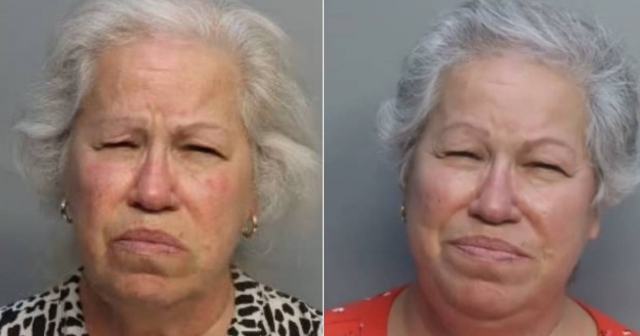The Cuban broadcaster Marisela Alfonso Madrigal, who is residing in Spain, stated that she left Cuba to avoid going to prison.
During an interview with host Abel Álvarez for his YouTube program "Abel en cualquier parte," this was one of the topics they discussed in their conversation.
"How was that separation of telling your parents, who are over 80 years old, 'I’m leaving?'" was the question that triggered part of the host's response regarding her motivations for leaving the island.
"Look, I'm going to tell you something, that's a very painful, very hard situation. I think about that and it makes me feel a knot here (in my throat)," expressed Marisela while trying to answer the question.
The broadcaster narrated that she sat her parents down and told them that "as a result of all the complaints I am making against the regime and dictatorship in Cuba," she had to leave.
Marisela's mother is 80 years old and her father is 81, and at that age, she made them decide. "You have to choose, either you go with my brother (he lives in the United States) or your daughter goes to jail," she recounted.
"If I stay here, I'm going to jail and you will bring me the bags and I won’t let you see me. Otherwise, if I leave Cuba, at least you will see me on WhatsApp, it’s hard, it’s painful," she asserted.
At another point in the conversation, the former host of the program Frecuencia Total on the government station Radio Rebelde said that she underwent "a forced exile. I left Cuba to avoid being imprisoned, to not sacrifice myself for a people, a people that is not capable of coming together, and I include myself in that."
For several years, the communicator had not practiced her profession and had dedicated herself to denouncing the Cuban regime on social media and on her YouTube channel, La Madrigal.
"I say that I am a spectator who is in a dark movie theater, sitting in a seat, watching a horror movie, and I was narrating that horror movie that I did not create, I am not the screenwriter, I am not the director, and I am a victim of that dictatorship like all Cubans," she defined in her intervention with Álvarez.
In the interview, he acknowledged that "I would never call on a people to do what I did not do, because I did not go out to the street with a banner. And besides, we have repression, a dictatorship; they know that people cannot go out like on July 11. Where is everyone? Where are all those children, all those young people who peacefully went out to protest against that dictatorship and shouted for a change?" he questioned.
“I cry for Cuba, I cry for the Cubans, because when I arrived here last year (Spain) and I saw all this, I said, ‘But what have they done to us?’ They have stolen our lives, they have stolen our dreams, they have stolen our freedom and it hurts,” she said about her arrival in Spain where her only son lives.
Cuba has been internationally criticized for its restrictive policies on freedom of expression. Activists, journalists, and dissenters often face harassment, arbitrary arrests, and detentions for expressing opinions contrary to the government. Cuban laws severely limit freedom of the press and expression, leading many to seek refuge in other countries where they can express their opinions without fear of reprisals.
Marisela, upon leaving Cuba last year, left her parents, who are waiting for their parole to arrive, her mother-in-law who lives in Bolondrón (a locality in Matanzas), and her two little cats, "well cared for" until she can take them with her.
"I leave Cuba and fly to my other homeland, my mother by genealogical right (...) after deregistering from the MLA (my supply or ration book) and I laugh when I read in the OFICODA another one of their slogans: 'Our mission is to guarantee the family basket of our people contributing to its protection,'" he wrote on his Facebook profile when announcing his departure from the island.
In January of this year, she married Adriana Moenck in Havana, after more than a decade together. She accompanied her on the trip.
What do you think?
COMMENTFiled under:
